To mark Rare Disease Day 2025, we’re showcasing stories from our community to raise awareness of rare diseases and the way they can impact people’s lives. In her story, Sophie shares how she struggled to receive an accurate diagnosis of Cushing's, despite continuously pushing to be listened to. She describes the inspiring ways that having a rare disease has changed her outlook on life.
Sophie's story
Let’s rewind to 2022. I had just turned 30 and was looking forward to the next decade of my life. It started off great with birthday celebrations, spa days, holidays, concerts, so many plans with friends and family and then things slowly started to change.
I started to notice that I was losing a lot of hair which was really unusual as I’ve had lovely thick, long hair my entire life and always taken care of it. I thought it must have just been something or nothing so I ignored it. A few months went by and I was still losing my hair and now my periods were becoming late every month, so I booked an appointment with my doctors. Over the next year, I started having blood tests and ultrasound scans but everything was coming back normal.
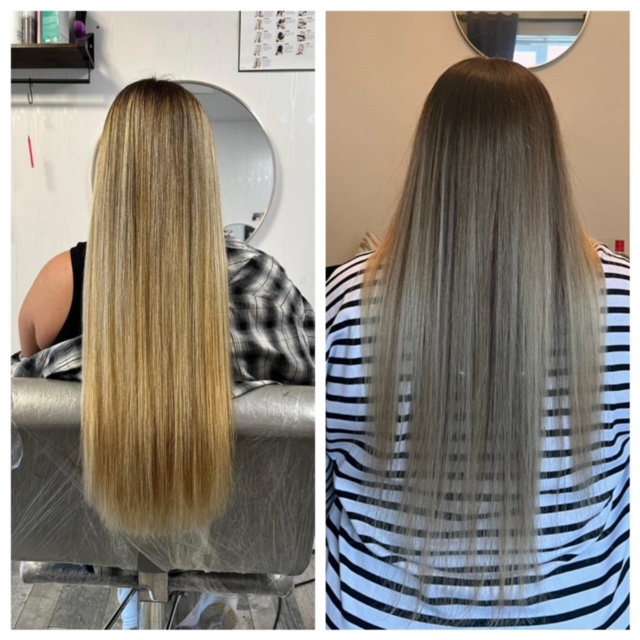
Fast forward to early 2024 I was still going to the doctors, they kept telling me there was nothing wrong with me. I knew I wasn’t ok, I could feel it, I knew something was wrong. By this time I hadn’t had a period in over 9 months and I had lost 2/3 of my hair. Not only that I had put on nearly 2 stone in weight even though I exercised twice a day and ate a balanced diet, my face was getting rounder and more inflamed, my skin was changing all over my body and I couldn’t sleep no matter how hard I tried.
I went back to the doctors one last time and the tests came back again that everything was ok and I probably just have PCOS even though I had been tested and the scan came back clear. I was told because the symptoms were similar that this is what it must be. So I was diagnosed with PCOS and sent on my way. I was about to give up as it was so draining to keep being told that there was nothing wrong, but I knew it wasn’t PCOS. Something just didn’t feel right, so I went private to have some tests done and what happened from there took me on a life changing journey.
A medical professional during a brief conversation made a passing comment about a rare disease. I hadn’t heard of it and didn’t think anything of it at the time, but that evening at home I googled it and this image came up on screen of a depiction of a person who had this disease. Well, it was like looking in a mirror. I looked just like that image, so I started to do more research and low and behold I had every single symptom listed. Everything just started to make sense. It was now March 2024 and by this point I was very unwell but still hadn’t got a diagnosis, not even close. I asked my private consultant to run some tests specific to this rare disease. I knew at this point I needed to be on the NHS waiting list for treatment so I emailed my local endocrine consultant advising I was having tests done privately and if he could take me on as a patient if the tests came back positive. To my surprise I received a letter in the post in response to my email that he would add me to his clinic if the results came back positive. Whilst I was waiting for my results to come back, I took a turn for the worse and ended up being admitted into hospital. During my hospital stay my test results came back from my private consultant and everything started to become clear. The NHS endocrine consultant was notified and further testing took place, and it was starting to look more likely that it was in fact this rare disease.
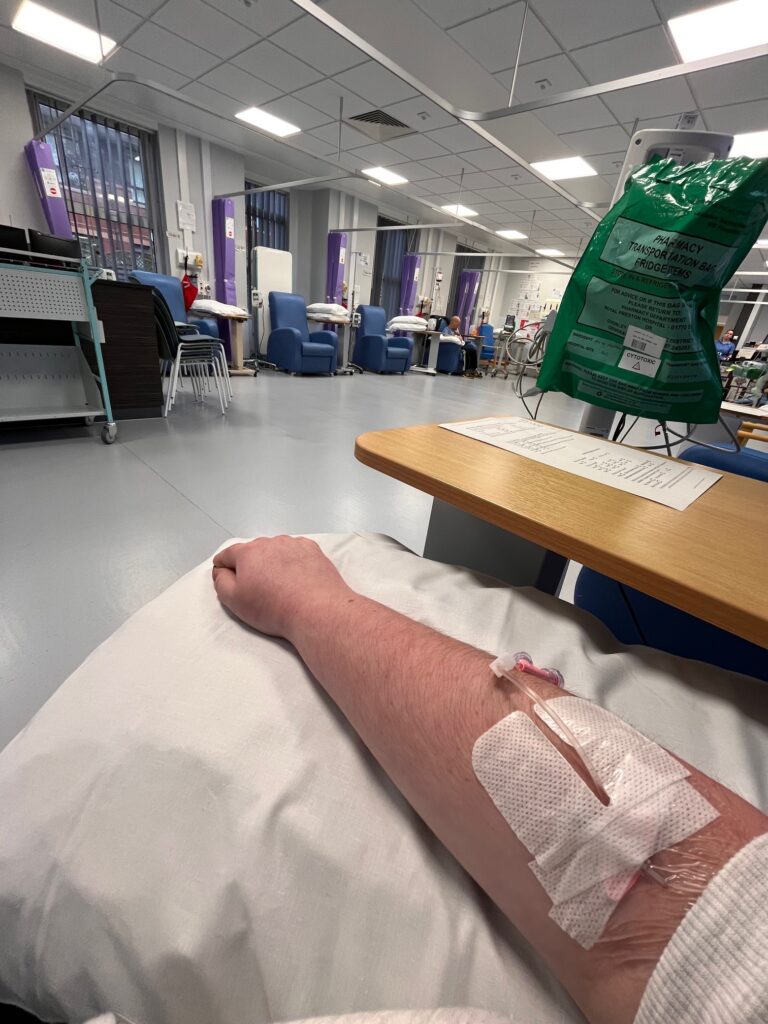
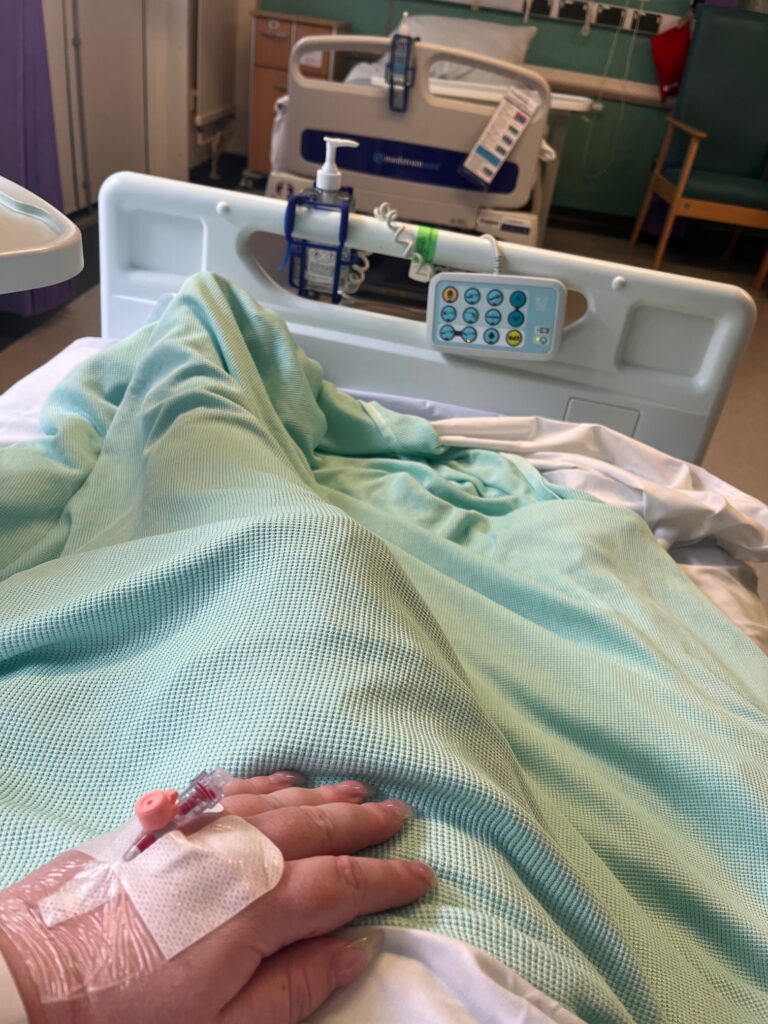
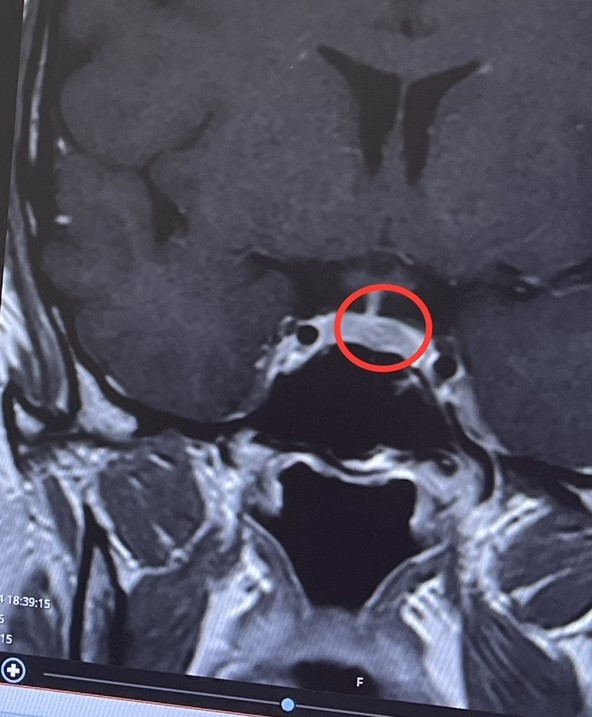
Over the next few weeks/months I had many specialised tests, blood tests, scans, MRIs etc. During this testing period I became so unwell, my symptoms were worsening by the day. I was on so much medication to just help me survive. I was in hospital at least once a week having various tests. By this point I had completely lost my identity; I couldn’t recognise myself. It was taking its toll on my emotional and physical health. After months of invasive tests and scans I was finally diagnosed with Cushing’s disease caused by a pituitary tumour. They had found a 9mm tumour in my pituitary gland that was secreting excessive amounts of cortisol which was causing unspeakable damage to my body. To get the official diagnosis was a relief after being told for nearly 2 years that there was nothing wrong with me. I finally felt validated but also terrified at the same time. My health was deteriorating very fast and surgery was the only option to remove the tumour.
My consultant fast-tracked the surgery and I was referred to the neurology team. Within a week I was in for my pre-op and my surgery date was given. D-day arrived: on the 8th November I underwent transsphenoidal brain surgery to remove the tumour in my pituitary gland. For better or worse, that day changed my life.
I am now 3 months post-op and trying to navigate my new normal. I’m steroid dependent as my body is no longer producing cortisol. I have adrenal insufficiency and due to damage to my pituitary gland during surgery I now have AVP deficiency. My life looks very different to how it used to. I’m not the same person I was before my diagnosis but one thing I am thankful for is that I’m here and I’m alive. The last 12 months have been traumatic, emotional, frustrating at times and exhausting but I wouldn’t have been able to get through it without my close friends and family and my consultant, his secretary and all the other NHS staff.
I don’t know what the future has in store for me but for now I will continue to recover and take the small wins everyday. Everything happens for a reason. I’m unsure as to why this happened to me, but I have a feeling its because I’m here to help others. In what capacity I don’t know but I’m looking forward to the journey.
Living with a rare disease
Living with a rare disease can be overwhelming and scary. Firstly, it can be difficult as people have never heard of it and it's unlikely you will come across people in your circle that have, let alone someone actually being diagnosed with it. The one thing I struggled with with having a rare disease was that no one around me could understand what I was going through; no one could relate. That was until I found a support group on Facebook and the resources available through The Pituitary Foundation.
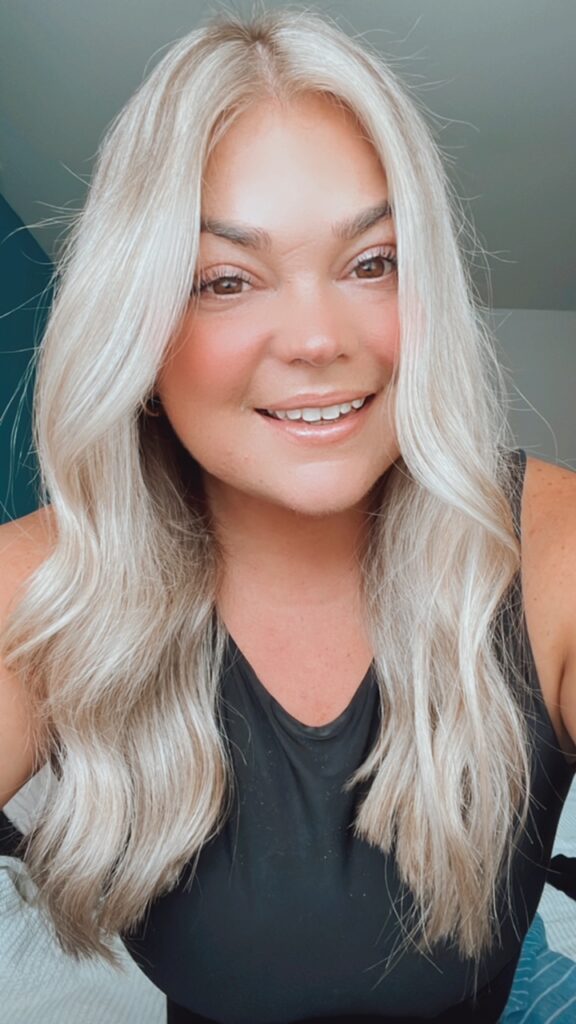
Being diagnosed with a rare disease doesn’t mean your life is over, it actually enables you to re-evaluate your life and focus on what’s important. Sometimes you just let life pass you by as you’re busy with work, looking after kids, family or friends etc, and within all that you forget to live. Having been diagnosed has allowed me to take a step back, look at my life differently and now I’m ready to grab it with both hands and truly live my life with no regrets. Life is far too short so strap in and enjoy the ride.
Thank you Sophie for sharing your story! If you would like to share your story with the pituitary community, please email [email protected]. Views and experiences expressed in stories of those of the community member and do not necessarily reflect The Pituitary Foundation.
For Rare Disease Day 2025, Emily shares her story of how a thunderclap headache and numb leg led her to be diagnosed with pituitary apoplexy and acromegaly.
Emily's story
At just 22 years old, my life was turned upside down after a sudden medical crisis led to a brain surgery that would change my life forever. What began as an unexpected thunder clap headache, combined with a numb leg, became a life-threatening emergency when doctors discovered a brain apoplexy (bleed) caused by a tumour, and a rare condition known as acromegaly.
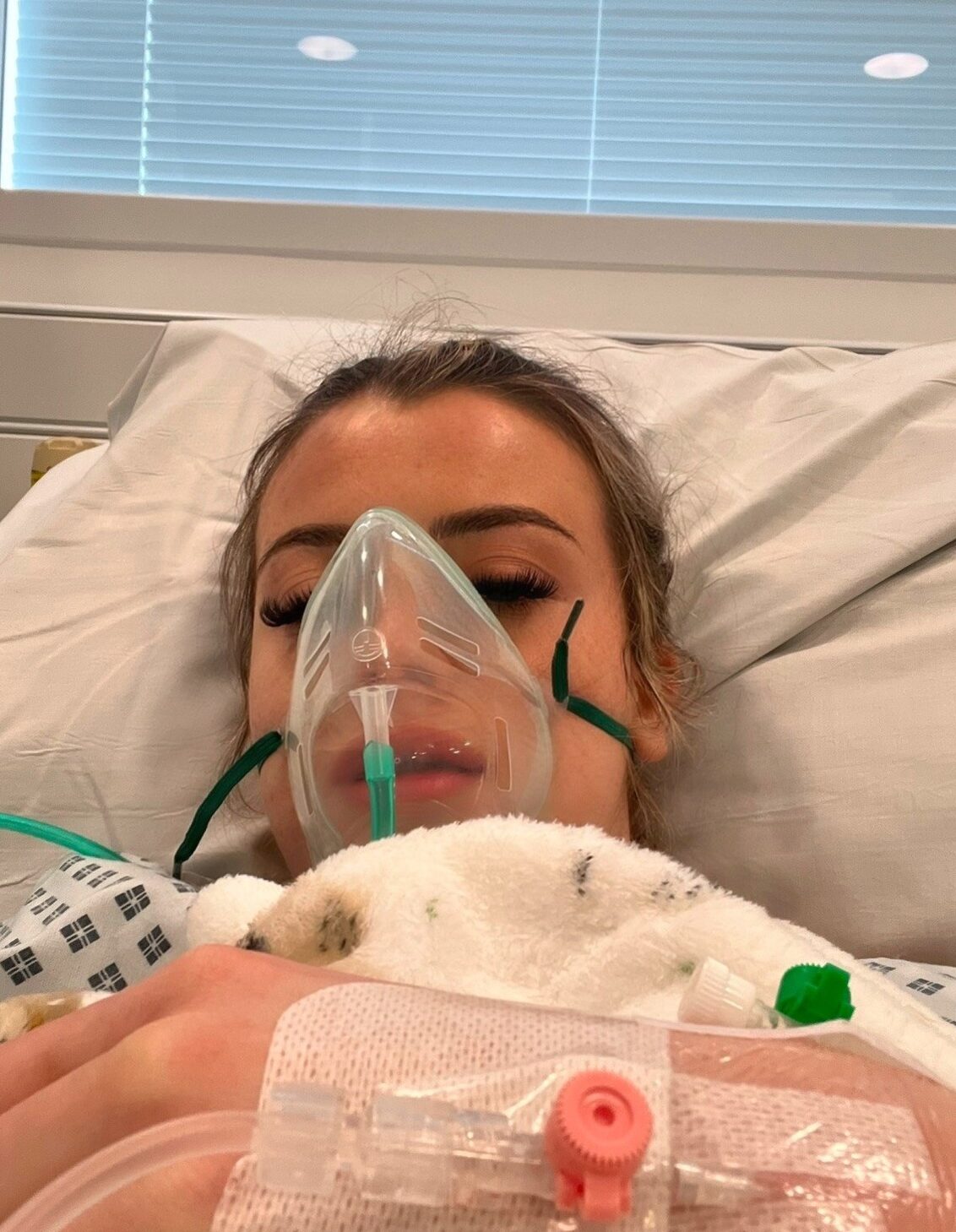
Prior to this, I had always been healthy, full of energy and the happiest in the room but this all changed when I experienced a sudden bleed in my brain; an event known as a pituitary apoplexy. The tumour, which had been quietly growing in my pituitary gland, was secreting excess growth hormones, leading to a range of disturbing symptoms that I had struggled with but hadn’t fully understood until that moment. I had no idea what was happening to me.
Consultants quickly diagnosed me with acromegaly – a rare disorder caused by a tumour on my pituitary gland that releases excessive growth hormone into the body.
The operation to remove the tumour was urgent. The longer the tumour remained, the greater the risk to my life. I didn’t know what to think when they told me how serious it was. My world just seemed to stop.
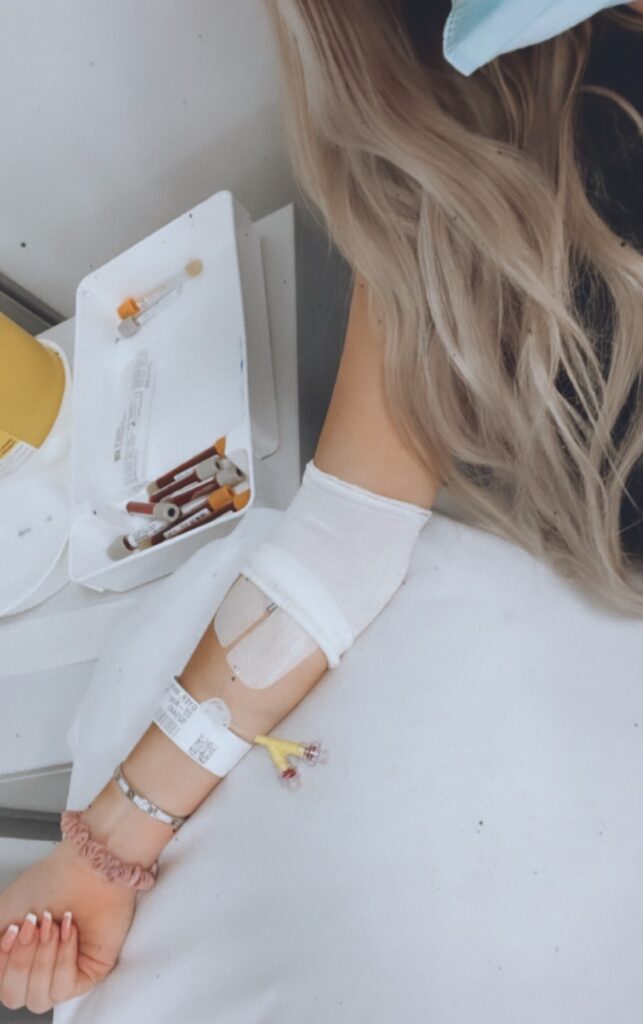
The surgery was a success (for now) but the road to recovery was far more difficult than I could have anticipated. Over the following weeks and years, my physical and emotional world was turned upside down. In the hospital, I endured more than 589 blood tests, MRI scans, CT scans, PET scans, ultrasounds, X-Rays, glucose intolerance tests, eye tests and more, as doctors worked tirelessly to monitor my condition. Each needle, each test, was a reminder of the fragility of my body and my future.
There were days when I felt like a pin cushion. It was hard to keep track of how many blood tests I had but I knew they were doing everything they could to help me.
While the surgery saved my life, the physical toll was huge. The changes caused by the tumour — and the subsequent removal of it — altered my body in ways I wasn’t prepared for.
Thankfully, throughout my recovery, I was never alone. My parents, who had been by my side since the first terrifying moments in the hospital, were my constant source of support. I couldn’t have made it through without them. They were there every step of the way. Mum sat with me through the long nights and Dad kept telling me I was going to be okay, even when I didn’t believe it. My Dad even went on to run a marathon to raise money for The Pituitary Foundation.
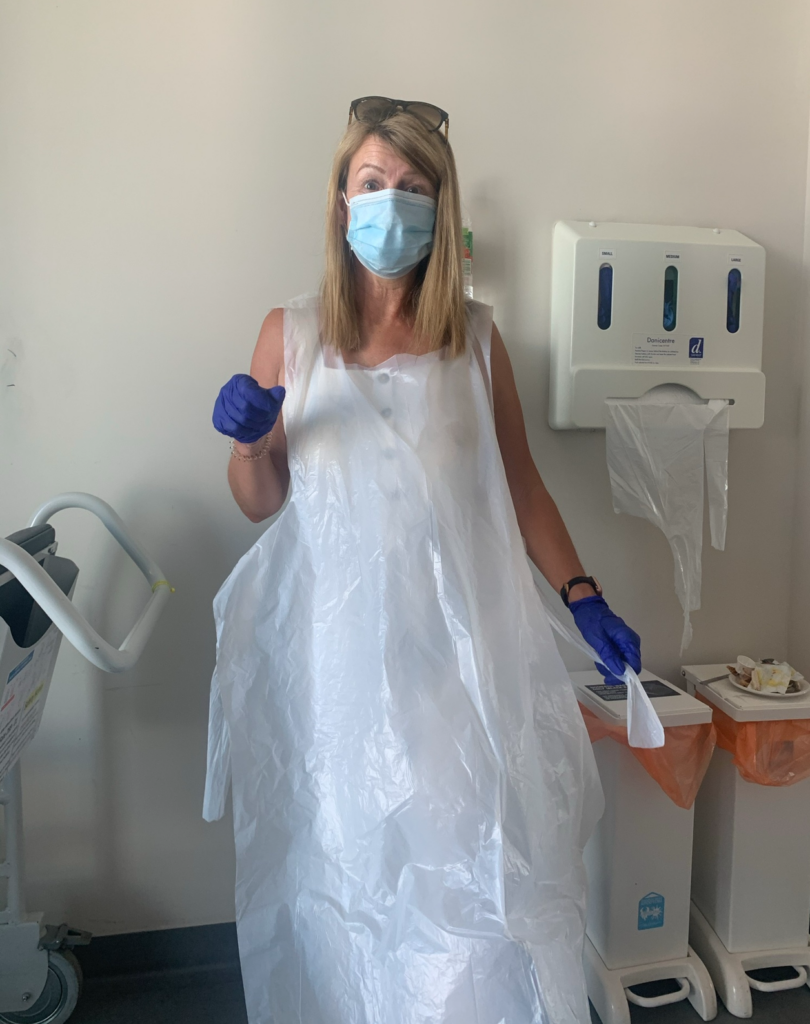
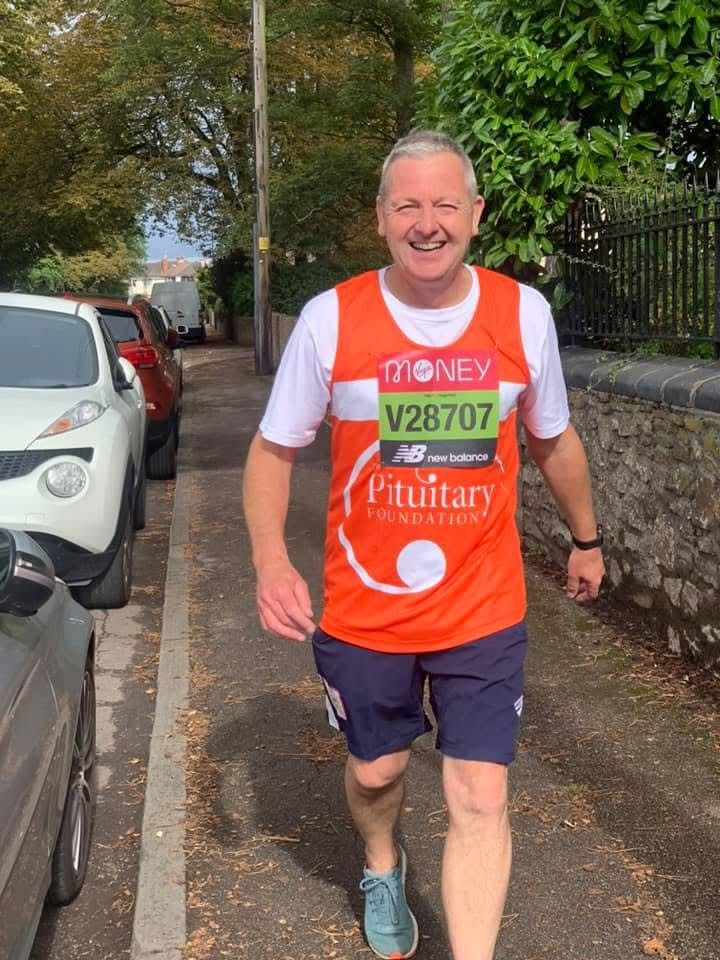
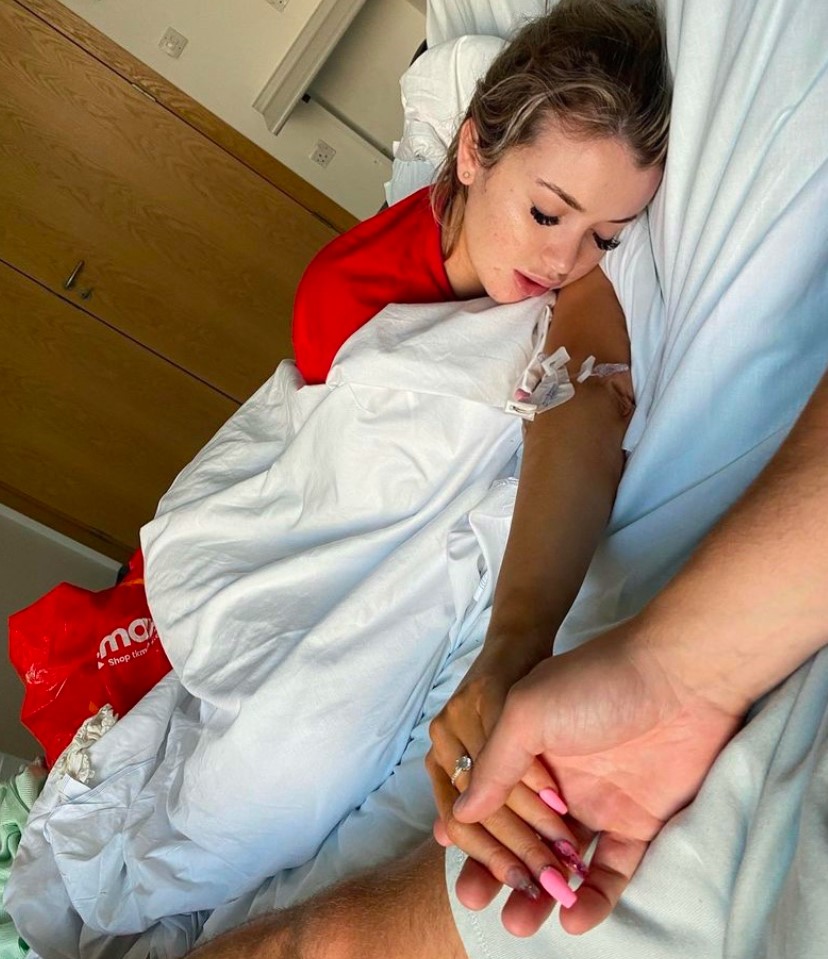
My partner was also a huge source of support for me. He never left my side. He would talk to me, hold my hand and remind me that we were in this together. I don’t know what I would have done without him.
During the worst of it, I also found comfort in Remi, my little cavapoo. Every time I was scared or upset, she’d jump up on the bed and curl up next to me and made me feel less alone.
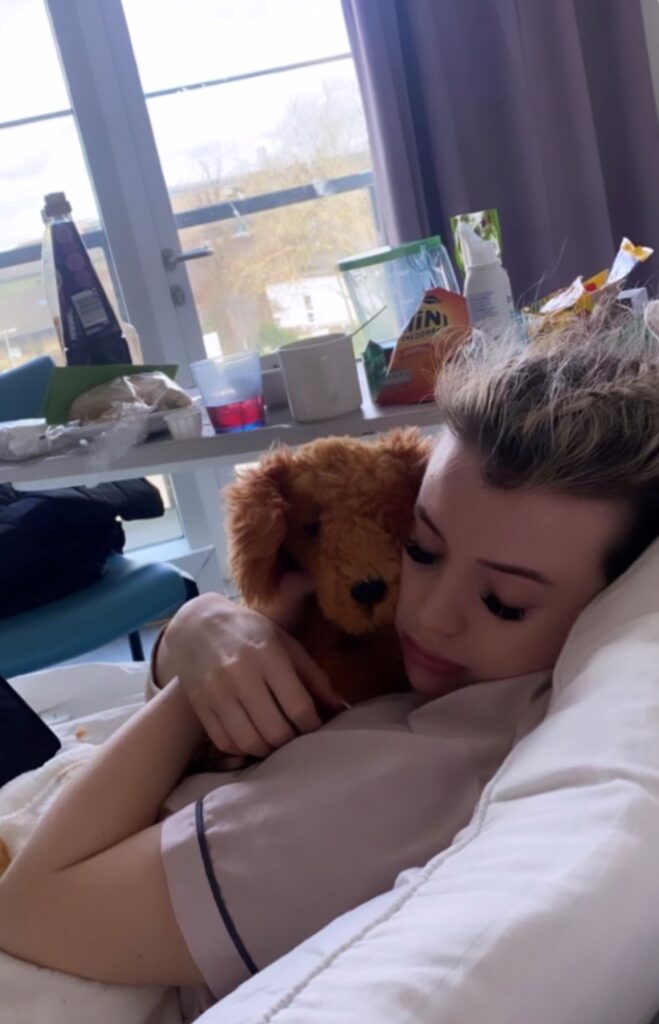
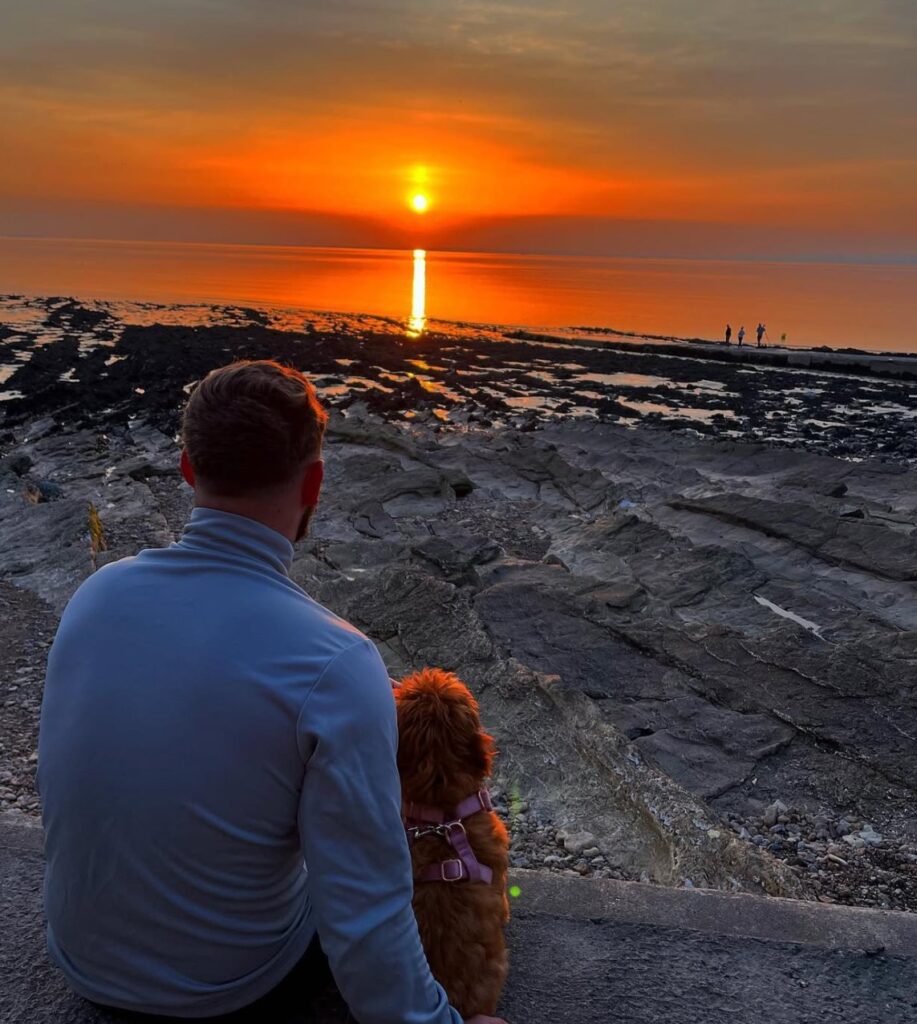
I’m still recovering and the emotional and physical challenges have been overwhelming at times. The lingering effects of the tumour and the surgery have left me with changes to my body, my health and my sense of self. But I still want to find a way to move forward.
I’ll never be the same person I was before but I’ve learned that strength doesn’t always mean being the same. It means pushing through the pain, finding hope when you feel like giving up, and knowing that there are people who love you no matter what. Life can change in an instant, but if there’s one thing I’ve learned through all of this, it’s that you can always find a way to rise above. Not every disability is visible!!
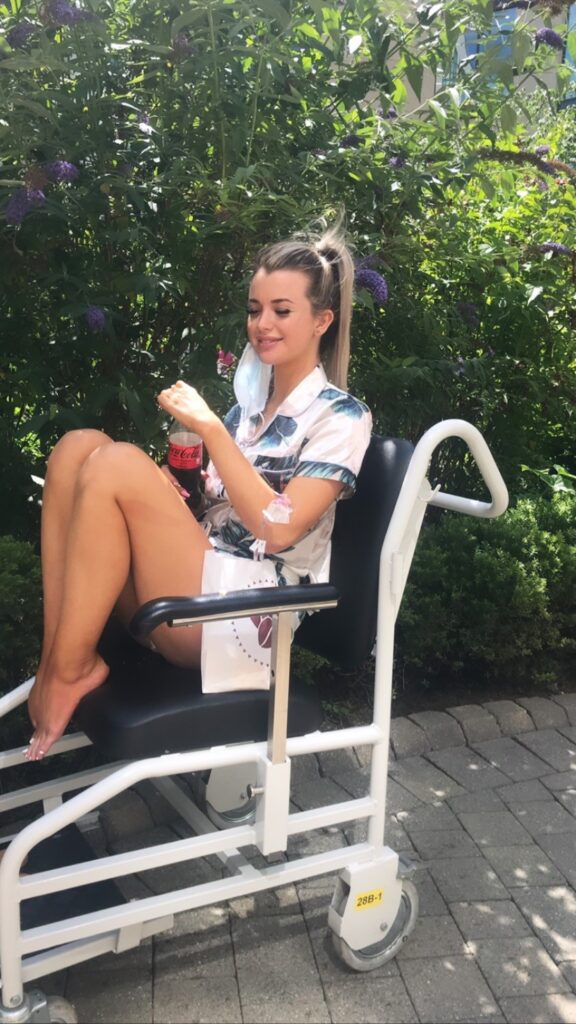
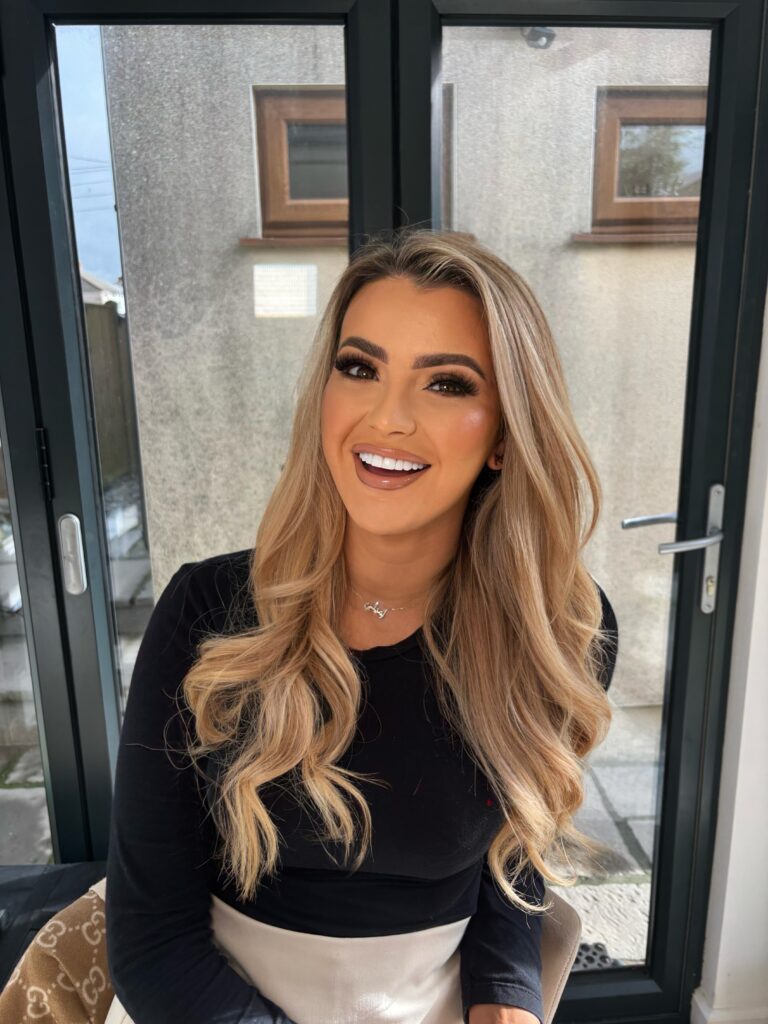
Thank you Emily for sharing your story. If you would like to share your story with the community, please email [email protected]. All opinions and experiences expressed in stories are those of the community member and do not necessarily reflect the views and opinions of The Pituitary Foundation.
To mark Rare Disease Day 2025, we're showcasing stories from our community to raise awareness of rare diseases and the way they can impact people's lives. In his story, Jerome describes the symptoms he experienced in the lead up to obtaining a diagnosis and the ways his condition impacted his life and routine.
Jerome's story
In my early 20s, I noticed a slight change in my libido. I went to the doctor and they said that because of my age there was nothing to worry about. They suggested taking medication but I didn't want to do this as I figured my problems were related to anxiety, so I just left it be.
As the years went on, the problems I was experiencing just got worse and worse. I assumed it was down to low mood and feeling down. Fast forward 5 years and I was training for the Loch Ness Marathon, at the mediocre time of 5:46. In the weeks that followed, I found I was unable to recover properly and was suffering from extreme fatigue. I kept being late for work at 9am, as a result of sleeping in, even though I previously was used to getting up at 6am.
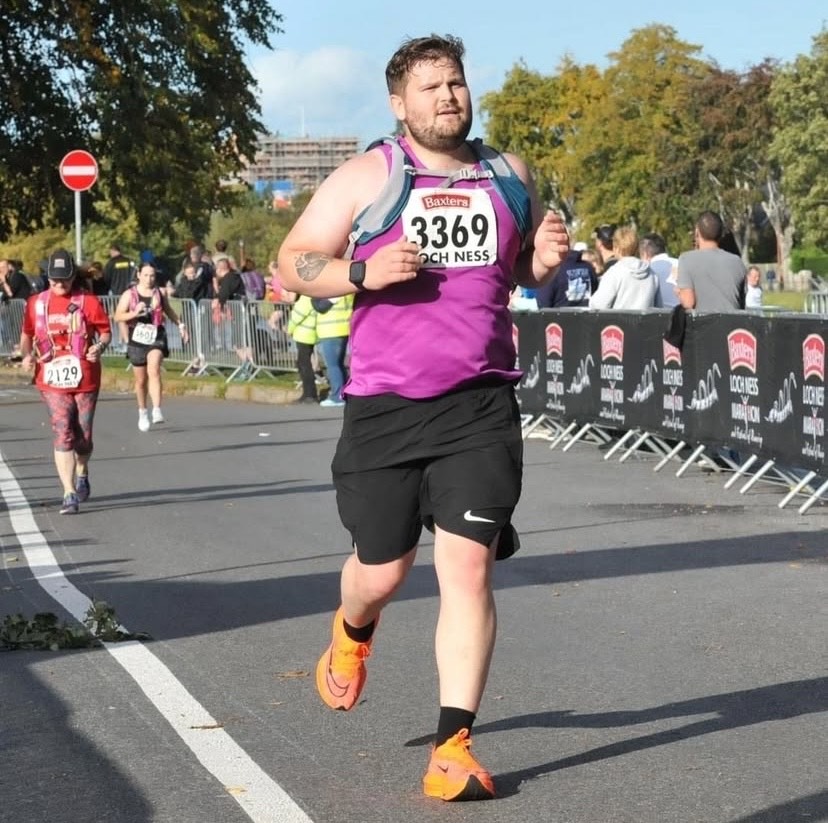
Then all my joints started to ache and become stiff, to the point that most movement hurt me and I couldn't move fast at all because of the pain I was in. The strangest thing was that I was crying at basically anything and I just felt like a shell of my former self.
Following this, I quit the gym and stopped working. I felt truly useless for the first time in my life. I had my blood tested by the doctors after admitting to myself that I was ill. The doctors rang me very quickly, telling me they thought I had a benign tumour, blocking my pituitary hormones. After a few tests and an MRI, they found a lesion that had begun to bleed on to my brain, which is what made me feel so rough.
On the day my results came in the doctors drove out to me to give me cortisol because I'd not had any in a while. In the months that followed, I slowly got back to normal life. Finally, I'm at a point where I can run again and work and life is feeling a bit more normal.
I'm now trying to train again for the Loch Ness Marathon and am raising money for The Pituitary Foundation. I hope to raise funds and awareness for a charity that helped me understand what was happening and understand how common my experiences are within the pituitary community.
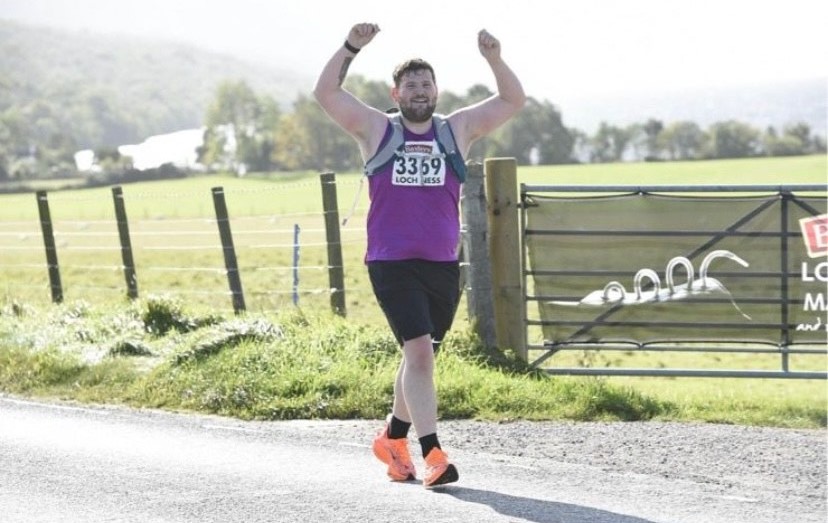
If you would like to donate to Jerome's fundraising activities, you can do so using his Just Giving Page. You can also keep up with his running journey by following his Instagram page @runningwithrome. We want to say a huge thank you to Jerome for sharing his story with us and for working so hard to raise funds for The Foundation!
If you would like to share your story with the pituitary community, please email [email protected]. Views and experiences expressed in stories of those of the community member and do not necessarily reflect The Pituitary Foundation.
To mark Rare Disease Day 2025, we're showcasing stories from our community to raise awareness of rare diseases and the way they can impact people's lives. In her story, Gail Weingartner, a founding member of The Pituitary Foundation, shares her experience of being diagnosed with a pituitary condition and how this led her to kick-start what became a national support group service, offering support groups at 28 locations across the UK.
To this day, Gail is still an acting volunteer with The Pituitary Foundation, working as a Support Group Leader for the Solent and Isle of Wight Support Group. Thank you Gail for your many years of dedication to the charity and for sharing your story!
Gail's story
I married my lovely husband Rod in October last year, who is so very supportive & understanding of my ‘pain in the botty’ pituitary condition! A key hobby for us both is riding out on our motorbikes & we do our best tackling Ceroc dancing once a week. We have a joint love of Scotland and Greece, and I practice my Greek language skills whenever possible. I started up a pituitary patient local support group in 1995 and now head the Solent & Isle of Wight group as a Support Group Leader.
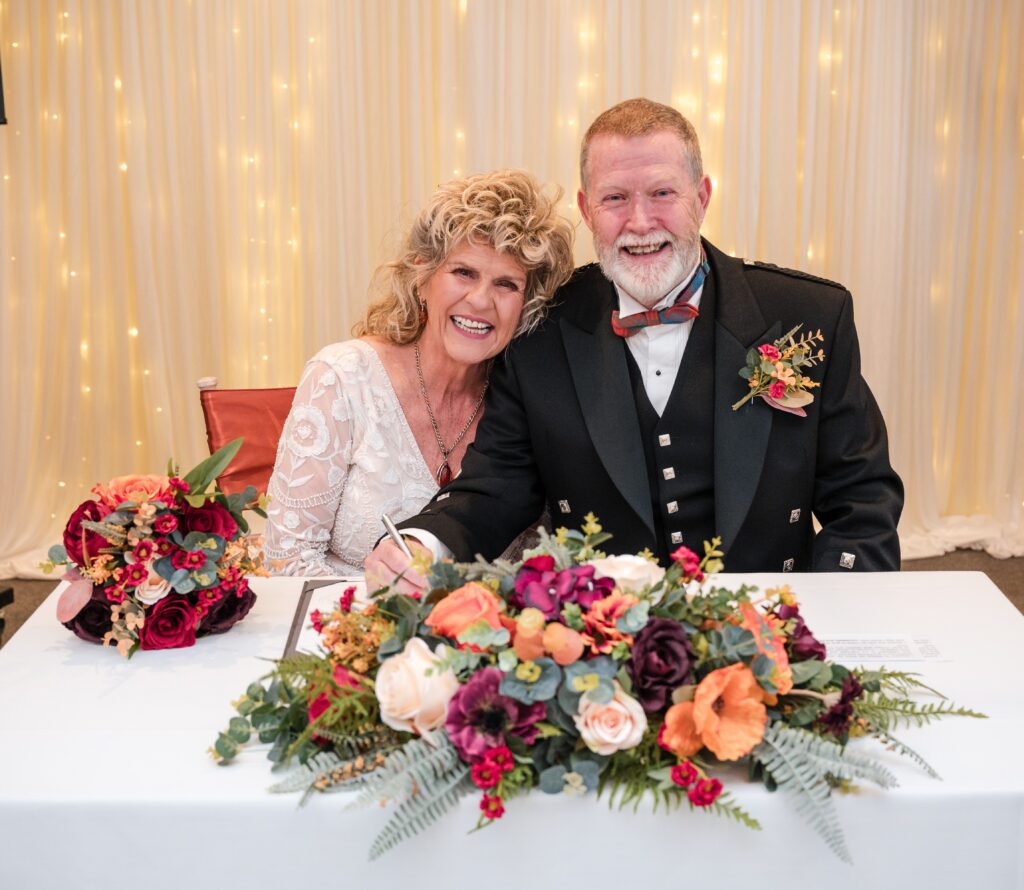
I remember the awful experience (understatement) happening over several years leading up to me diagnosing myself as a pituitary patient. My personal ‘hell’ whilst thinking I was going bonkers; my GP only suggesting beta blockers and anti-depressants. That was at the end of 1992 and following transsphenoidal surgery, radiotherapy plus fighting to recover, I just knew other pituitary patients needed support and to know they were not alone; that is how I became involved as a founding member of The Pituitary Foundation.
In 1993, there was no Pituitary Foundation and I wanted to initiate something to support pituitary patients, but this would have very much been a ‘one-man band’. On contacting the Society for Endocrinology, I was invited to the national launch on 23 November 1994 and remember sitting in an ante-room with 5 other patients, chatting about how to get local support groups off the ground. I naïvely said “I’m happy to coordinate” – fatal last words! I became a trustee and, as a volunteer, took on the role of national coordinator, helping to kick-start 28 support groups around the UK and Southern Ireland.
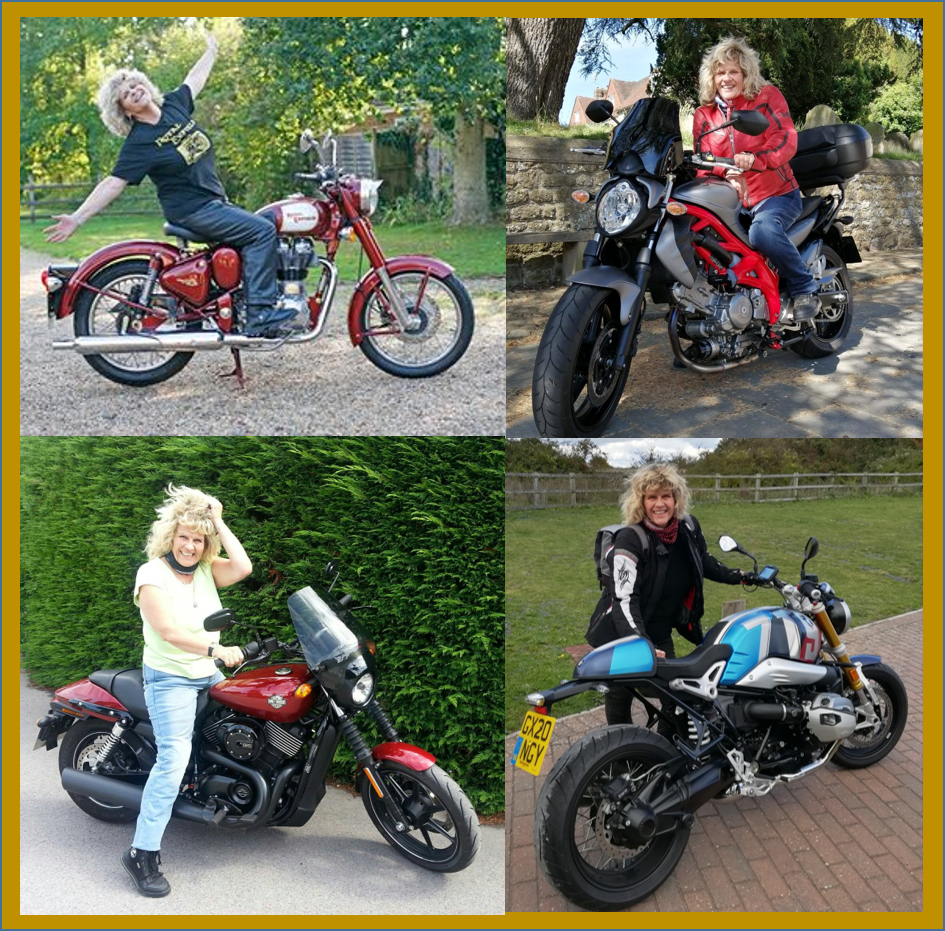
In many respects I consider myself lucky because I do manage to lead a fairly normal life (what’s normal? 😉) and I work as a charity mini-bus driver 3 days per week. Typically though, my dear little pituitary dictates that on a daily basis I don’t honestly know how I will feel. On a good day, I can rule the world but on a really bad one, I suffer a totally dreadful hangover-type feeling (no alcoholic fun the night before though), with me in bed sleeping the day away whilst my body seems to recharge its battery. Then, there are the in-between days when I could be feeling OK, another when I’m just a little under-par or the days when I’m struggling but functioning. Of course, this does make me unreliable and I then have to cancel a social engagement, motorbike ride, dancing, etc, etc.
You will hear many pituitary patients say that because our conditions are often not visible, this makes it very difficult for ‘Joe Public’ to empathise or understand. However, we are not alone with this because many other medical conditions are also rare and non-visible.
As pituitary patients, we owe it to ourselves and to those who have not yet been diagnosed, to shout loud and clear about our conditions, take responsibility for our own bodies by doing our homework and spreading the word to educate whoever may be listening. We do of course though, need to gauge if eyes are beginning to glaze over!👍
My role as a Support Group Leader is supported by a strong, proactive committee and is very rewarding and lots of fun too. We hold 4 get-togethers each year near Portsmouth, one every year on the Isle of Wight and bi-annually at Southampton General Hospital. We often invite speakers and also hold our (what we call) patient-led meetings, where we sit chatting and sharing our experiences, hints and tips and all things pituitary, plus we always have a laugh too.
Being a pituitary patient can be lonely at times so I feel it can really help if we are able to reach out to others facing similar, if not the same, issues. Rod always comes along to our meetings and says he has learnt heaps from doing so. I consider myself extremely fortunate that he is so supportive.
Yes, my pituitary condition has impacted on my life hugely over the years, with a couple of examples being when my then fiancé could no longer cope with our ‘pituitary situation’ and also having to leave my employment as a Purser on Boeing 747s. Life could have been so very different but I do truly believe that I am a nicer and better person as a result of my pituitary condition (I don’t necessarily see it that way on a really rough day though 🤣). Also, and very importantly, I have made lots of lovely friends and met some amazing people whilst treading the sometimes rough path along my pituitary journey.
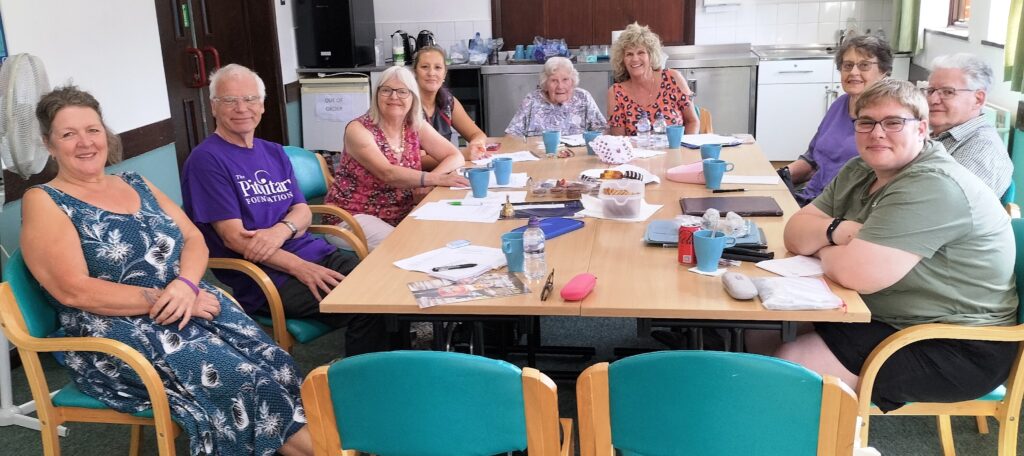
If you would like to have your story shared with our community, please contact [email protected]. Views and experiences expressed in stories of those of the community member and do not necessarily reflect The Pituitary Foundation.
Interested in joining a support group? You can see dates and locations for upcoming support groups on our Support Groups page.







